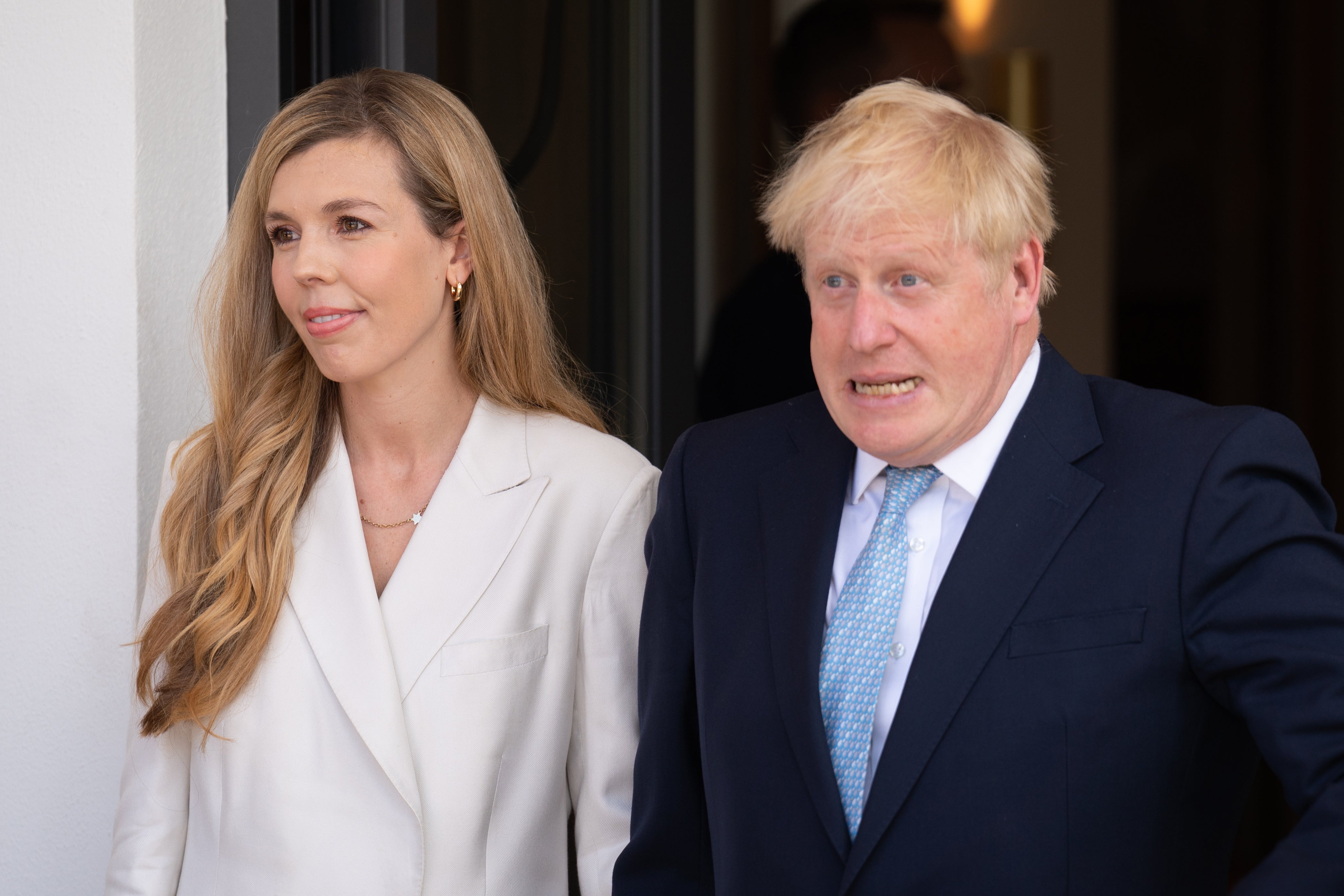Head of civil service declines to say whether he spoke to PM about job for wife
The committee also heard that a decision on the recruitment process for the replacement for Lord Geidt has not yet been made.

Your support helps us to tell the story
From reproductive rights to climate change to Big Tech, The Independent is on the ground when the story is developing. Whether it's investigating the financials of Elon Musk's pro-Trump PAC or producing our latest documentary, 'The A Word', which shines a light on the American women fighting for reproductive rights, we know how important it is to parse out the facts from the messaging.
At such a critical moment in US history, we need reporters on the ground. Your donation allows us to keep sending journalists to speak to both sides of the story.
The Independent is trusted by Americans across the entire political spectrum. And unlike many other quality news outlets, we choose not to lock Americans out of our reporting and analysis with paywalls. We believe quality journalism should be available to everyone, paid for by those who can afford it.
Your support makes all the difference.The head of the civil service refused to say whether he has spoken to the Prime Minister about allegations he tried to procure a Government job for his now wife.
Cabinet Secretary Simon Case appeared before the Public Administration and Constitutional Affairs Committee on Tuesday, where he said he did not have the power to initiate an investigation into allegations Boris Johnson tried to hire Carrie Symonds, as she then was, as his £100,000-a-year chief of staff when he was foreign secretary in 2018.
Under questioning from Labour MP John McDonnell, Mr Case said he had no knowledge of the allegations, while director general of propriety and ethics at the Cabinet Office, Darren Tierney, said he was not in the role at the time and could not comment.
Mr Case said the matter had not been investigated, to incredulity from the veteran MP.
“This is where we get into the processes that exist. An investigation under the ministerial code, under the current rubric, can only be authorised by the Prime Minister,” Mr Case told him.
Committee chairman William Wragg asked Mr Case if the Prime Minister was not “keen” on authorising an investigation.
“These are questions that obviously need to be directed to the Prime Minister,” Mr Case replied.
Mr McDonnell’s questioning led to a robust exchange between the pair, as he asked the top civil servant if he had discussed the matter with Mr Johnson and why there was not an investigation into it.
“I do not have an independent right of initiation of investigations,” Mr Case responded.
Mr McDonnell asked him: “Haven’t you any responsibility, as one of the most senior civil servants in Government, to uphold standards at all?”
Mr Case said: “I am very aware of my responsibilities under the civil service code and I take them very seriously.”
Pressed again, with Mr McDonnell suggesting Mr Case had in fact discussed the matter with Mr Johnson, Mr Case was firm, saying: “I have said I am not commenting on my private conversations with the Prime Minister.”
Mr McDonnell did elicit a laugh from the Cabinet Secretary when he told him: “We all have a cross to bear.”
Downing Street has previously said Mr Johnson never recommended Mrs Johnson for a Government role.
The committee earlier heard that a decision on the recruitment process for the replacement for Lord Geidt has not yet been made.
The committee was also told by Mr Case that Boris Johnson’s former ministerial interests adviser was not asked for his opinion on the controversial Northern Ireland Protocol Bill before he quit.
The appearance comes in the shadow of the partygate controversy, as well as the decision of a row over steel tariffs and international trade rules seen as the final straw for Mr Johnson’s ethics adviser.
The duty to support the Government of the day to the best of your ability and upholding the values can create challenges
Simon Case told the committee on Tuesday that “(Ministerial) Code issues didn’t arise” in the case of the Northern Ireland Protocol Bill, unlike in the case of the possible breach of World Trade Organisation (WTO) rules that triggered Lord Geidt’s resignation as independent adviser on the ministerial code.
Mr Case added: “The code in the end wasn’t in question so there was no reason, I don’t think anyway, I don’t believe Lord Geidt was consulted about the protocol.”
He declined to speculate on whether Lord Geidt had used the WTO issue, believed to relate to protections for the steel industry, as “an excuse” to quit.
Mr Tierney said the decision to consult Lord Geidt on the possible WTO breach was taken by the Prime Minister.
Mr Case began his highly anticipated appearance at the committee by talking about the “tension” or “juxtaposition” that can exist in the Civil Service Code.
He described the juxtaposition, saying: “The duty to support the government of the day to the best of your ability and upholding the values can create challenges”.
He stressed it is not a “permanent conflict”.
He went on: “The government of the day is one that is not remotely afraid of controversial policies. It believes it has a mandate to test established boundaries.
“It takes a robust view of the national interest and how the Government should protect it and focuses very much on accountability to people and Parliament, not on the unelected advisory structures.”
Asked about the recruitment process for Lord Geidt, it was put to him that he helped “twist the arm” of the former adviser.
“Did I twist his arm? It is for Lord Geidt to characterise, but I don’t think that’s right.”
He also acknowledged that it is now a much more “public role than it has been before”.